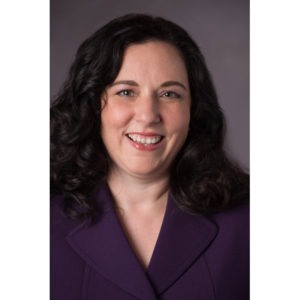Leaders of Tomorrow: G. Allen Power, MD
Physician, associate professor of medicine, Eden Alternative mentor, author and advocate for seniors here and abroad, G. Allen Power, MD, is an accomplished and enthusiastic culture change leader. His conversion to geriatrics began in 1991, when as a physician with a private practice he came across an ad for an assistant medical director in a nursing home. The idea intrigued him and the rest is, as they say, history.
His critically acclaimed book, Dementia Beyond Drugs, is the product of his belief that drugs do not help people that are distressed. While he was writing the book, Power met Jules Rosen, MD, a geriatric psychiatrist. In their conversation, Rosen noted that writing a book is fine, but most long-term care staffers don’t read that type of material on their time off. “He suggested that what direct caregivers, educators and administrators really need is in-service instruction,” says Power.
Witnessing the treatment of elders with Alzheimer’s and other dementias, Dr. Power concentrated his efforts on bringing culture and attitudinal change in their care. “What I discovered by peeling apart the layers is that our approach to dementia wasn’t working. Medicating distressed people is not the way to manage dementia.” Dr. Power blames the stigma of the disease. “Dementia’s not an easy thing to live with but we only see the loss, the deficits, the tragedy—we don’t see the people,” he explains.
This book inspired a new training program on dementia care, funded by the Alzheimer’s Foundation. “It’s an intense two-day course that teaches participants how to apply culture change principles in everyday life and care,” Dr. Power explains. He has traveled around the country and abroad lecturing and conducting training educating caregivers on creating person-centered models of care.
In 2012, Dr. Power was awarded a Bellagio Residency by the Rockefeller Foundation, which provided a month’s lodging in Italy, where he and other award recipients pursued various projects. He worked with Dr. Emi Kiyota, an environmental gerontologist, to develop sustainable, diversified communities that welcome everyone—all ages, all abilities.
One would think that being an internist and clinical associate professor at the University of Rochester would be enough. Dr. Power says he felt burned out in private practice and took an assistant medical director position in a local nursing home to try something different. While there, he began to hear about culture change and the Eden Alternative (EA).
Wanting to know more, he contacted EA founder Dr. Bill Thomas. EA principles, looking at a new, holistic way of caring for elders and a new way seeing them—beyond their diseases and disabilities, resonated with Dr. Power. To expand his culture change perspective and pass it along to others, Dr. Power eventually trained to become an Eden Alternative mentor and educator.
In 2000, Dr. Power took a position at St. John’s Home and found that the organization shared his vision and was ready to begin the culture change journey. He still works part-time at St. John’s when he is not lecturing. As an Eden Mentor and member of the board, his influence and commitment to seniors continues to grow.
He participated in a webcast by the Centers for Medicare & Medicaid Services (CMS) to teach surveyors about culture change. In addition, he recorded material for CMS educational package designed to provide direct caregivers with practical tools to help care for people with dementia.
In addition to his other talents, Dr. Power is a songwriter and musician who set his passion for elders to music. Folk trio Peter, Paul and Mary have performed his song “If You Don’t Mind,” which tells a story of elder autonomy.
If there’s a new way to teach and reach caregivers how to build life-affirming relationships with seniors, Dr. Power will find it and lead the charge.

Sandra Hoban was on I Advance Senior Care / Long-Term Living’s editorial staff for 17 years. She is one of the country’s longest-serving senior care journalists. Before joining Long-Term Living, she was a member of the promotions department at Advanstar Communications. In addition to her editorial experience, Sandi has served past roles in print and broadcast advertising as a traffic and talent coordinator.
Related Articles
Topics: Activities , Alzheimer's/Dementia , Articles , Clinical











